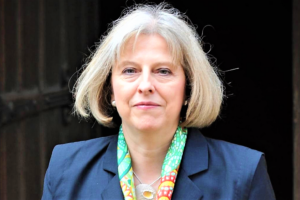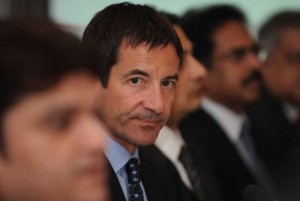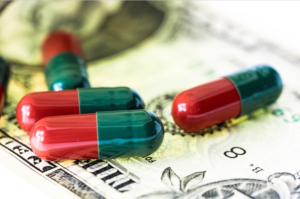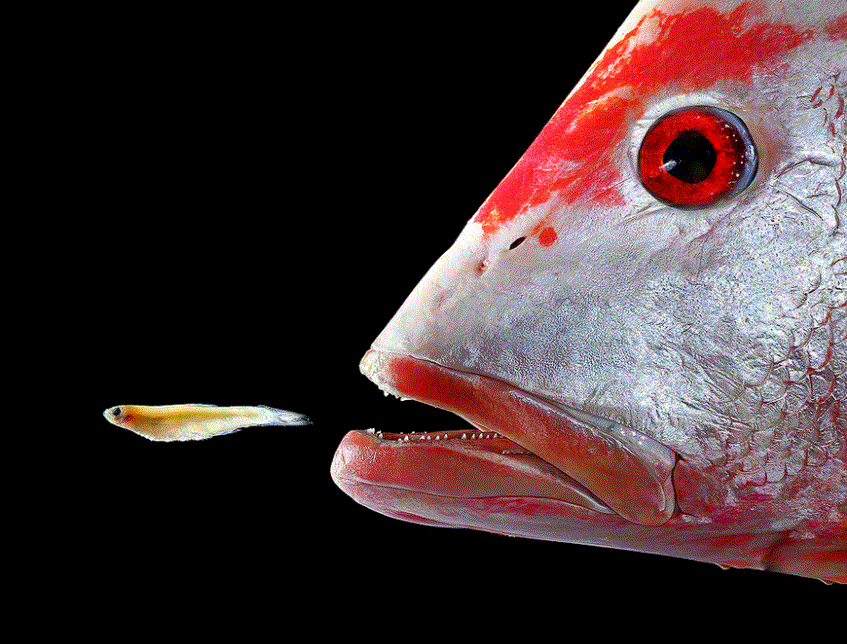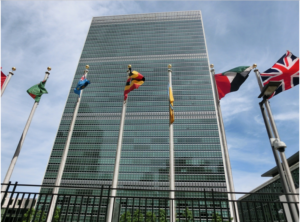- New UK drug cost rules leave companies fuming (reuters.com)
British drugmakers...accused Theresa May's Conservative government of breaking a manifesto commitment to improve access to new medicines, following approval of new cost rules...The angry response from both Big Pharma and biotech firms comes despite a concession by government in the latest version of the scheme, which increases the cost threshold for certain drugs for rare diseases from the previously planned level...The row comes at a sensitive time for the government, which is about to trigger proceedings to leave the European Union but wants to encourage investment by strategic industries, including the high-tech pharmaceuticals sector...Drug companies are already concerned that Brexit could make Britain a less attractive market, especially if the country ends up outside the current EU-wide system for drug licensing...The new system means that new drugs costing the National Health Service more than 20 million pounds ($24 million) a year will no longer be automatically funded, even if they are cost-effective. Instead, companies will have to enter negotiations to justify their use and work out funding...
- Hard to swallow: emerging markets get tougher for drugmakers (finance.yahoo.com)
Emerging markets have lost their luster for Big Pharma making drug firms ever more dependent on the United States for growth just as American anger over high medicine prices is building...A few years ago, the developing world was seen as a savior as patent after patent expired across the United States and Europe, but emerging market sales growth at the top drug firms slowed to less than two percent in the latest quarter...Forecasts...now suggest the United States will account for 55 percent of sales growth between 2016 and 2020, with emerging markets only contributing 30 percent...Many companies' sales in developing economies come from so-called branded generics, or off-patent medicines that command a premium to those made by local suppliers because the Western drugmaker's name is a proxy for quality...That business is now under threat as governments promote cheaper unbranded products as a route to universal healthcare...There is a lot of emphasis on providing essential medicines, which is providing growth for cheap local generics but not necessarily for multinational companies…
- Resistance is Futile (pharmatimes.com)
This month, the UK government's review of antimicrobial resistance sent alarm bells ringing in Whitehall and issued a call for new medicines to kill antibiotic-resistant superbugs...When economist and government minister Jim O'Neill published the final version of his long-awaited report...its message was clear – antimicrobial resistance is perhaps the single biggest threat in modern medicine...O'Neill stresses the need for new antibiotics...A truly new class of antibiotic has not been seen for decades because the lack of incentives for investment has led to reduced R&D...Many of the 'low hanging fruit' in terms of development have already been picked... Antibiotics are given for just a short course of treatment and so sales are very limited. If a new antibiotic is reserved only for use in treating resistant infections, then most of the time it will sit on the pharmacy shelf not being used. Again this disincentivises any commercial company to develop new antibiotics...With a renewed focus on AMR, big pharma has started to take interest...
- His Job Is to Sell a $1,000 Pill for $10 Without Losing Money (bloomberg.com)
Gregg Alton has what seems like a disorienting job at Gilead Sciences Inc. He’s paid to figure out how to sell the drug Sovaldi, which infamously retails in the U.S. at $1,000 a pill, for relatively next to nothing...The instructions for pricing the cure, which wipes out hepatitis C in just 12 weeks, basically go like this: "Get to as many patients as possible in low-income nations --and not lose money," Alton says. "It’s very simple."...Actually, it’s not so simple, but it is controversial. Decisions about what to charge around the world for life-saving remedies have spurred debate ever since Big Pharma began offering some discounts after a backlash in the ’90s, when groundbreaking HIV treatments reduced deaths in wealthy countries and not poor ones. Criticism has been harsh with Sovaldi, one of the most expensive and best-selling drugs in history...He offers a rare look at how a pharmaceutical giant walks the line between shareholder expectations on the one hand and global public health needs on the other. It starts with his team looking at the map through the lens of per-capita income. Countries that are well-off go into one bucket. The rest are sorted by wealth and rate of hepatitis C infection...What’s frustrating, he says, is that the good Gilead does in other countries is overshadowed by reverberations from the U.S. sticker shock. However his company tries to explain the value it brings to patients, it can’t compete, he says. "It’s never going to be as powerful as ‘$1,000 a pill? Is that fair?’"
- Big Pharma’s Offer to Trump: Discounts When Drugs Don’t Work (bloomberg.com)
President Donald Trump says drug prices are astronomical and something needs to be done...Pharmaceutical giants have an answer that doesn’t involve lowering list prices: refunding some of the money to insurers if a drug doesn’t work as expected...The concept of pay-for-performance isn’t new in the industry. But the number of such agreements between drugmakers and insurers has grown in the past year as Big Pharma seeks to defuse criticism over the soaring prices of some brand drugs...In a sign of how central value-based programs have become in the pushback, the lobby group Pharmaceutical Research and Manufacturers of America plans to roll out the concept later this month to the media as part of proposals on addressing drug pricing concerns...While reimbursing part of the cost for a treatment that doesn’t perform well sounds like a sensible solution, the concept is hard to execute. In conditions like diabetes or high cholesterol, results can be tracked with simple numerical measures -- but it may be harder to pull off in areas like depression or cancer. There’s also little evidence that pay-for-performance will significantly lower drug prices overall...
- Pfizer ready to shell out $14B for most-wanted M&A target Medivation: FT (fiercepharma.com)Pfizer boosts cancer drug pipeline with $14 billion Medivation deal (reuters.com)
The Medivation hunt may be all but over. Pfizer is close to striking an agreement to buy the...biotech in a deal worth about $14 billion...If Pfizer and Medivation do finalize a deal, it would wrap up a months-long buyout race that pulled in much of Big Pharma and Big Biotech along the way. With its blockbuster oncology med Xtandi (enzalutamide) ready to add to a buyer’s sales, plus a much-anticipated late-stage cancer candidate and a pipeline of other prospects, Medivation has been a sought-after prize in an otherwise slow summer for biopharma M&A....
- In China’s tougher drug market, minnows open back door for ‘Big Pharma’ (reuters.com)
Armed with Beijing funds and friends in the right places, Chinese drug minnows are thriving, luring money from 'Big Pharma' majors struggling to restore the strong growth they once enjoyed in the world's second-largest medicine market...Chinese healthcare mergers and acquisitions nearly tripled last year to more than $50 billion, helped by giants like GlaxoSmithKline PLC and Eli Lilly and Co tapping small biotech and research innovators. The targets offer vital regulatory know-how as Beijing builds a domestic drug industry...For Big Pharma, acquisitions, licensing deals and joint ventures offer a back door into a market where Beijing expects healthcare spending to rise to $1.3 trillion by 2020. The majors need the opening: their China growth has stalled to low single-digit pace from over 20 percent just four years ago as branded generics have lost their shine...
- Drugmakers agree to clean up plants, take other steps to fight antibiotic resistance (fiercepharma.com)Industry Roadmap for Progress on Combating Antimicrobial Resistance – September 2016 (ifpma.org)
More than a dozen pharmaceutical companies from Big Pharma players to CMOs have agreed to take steps to fight antibiotic resistance, including reviewing their manufacturing and supply chains and working on standards for cleaning up antibiotic waste discharge...The agreement was announced this week as part of a United Nations meeting...where antibiotic resistance was said to be one of the pressing issues facing the world. It is a pharma specific follow-up to the broader Davos Declaration signed by about 100 companies during meetings early this year...Three other steps the 13 drug companies agreed to take are to help ensure antibiotics are used only by patients who need them; to improve access to current and future antibiotics, vaccines, and diagnostics while working to reduce the prevalence of substandard and counterfeit antibiotics in high-risk markets; and to look for places to cooperate in developing new antibiotics…Though the commitment may be there, history has shown this to be a tough issue with which to deal...
- After Medivation, what’s next? Alexion, BioMarin, Incyte could be Big Pharma’s next M&A targets: Analysts (fiercepharma.com)
Megamergers could fall out of favor over the next year...small- to mid-sized deals up to $25 billion? Expect those aplenty given “the need many larger companies have to try and boost their growth prospects.”
Medivation’s prized prostate cancer pill Xtandi
Incyte, a $14.7 billion market-cap company that boasts myelofibrosis med Jakafi.
Epacadostat is entering Phase III combo studies...is being studied in a range of other tumor types
Alexion, a $27 billion company whose Soliris--the priciest med in the world--leads a portfolio of three approved rare-disease drugs.
BioMarin, the perennial subject of takeover buzz with 5 marketed meds and a host of pipeline prospects.
- U.K. industry lobby group to write pro-pharma features with newspaper that berates it (fiercepharma.com)
In one of the strangest tie-ups in recent memory, the U.K.'s pharma trade group the ABPI (Association of the British Pharmaceutical Industry) has signed a major editorial deal with The Guardian newspaper to write two dozen features on why the industry is so great and how criticism against it is unjustified...This is odd for a number of reasons, but predominately because The Guardian is a Left-leaning newspaper with a long history of an anti-corporate culture, much of which is in fact directed against the pharma industry...negative stories have irked the ABPI and its Big Pharma members, who pay a fee at the top range of around £750,000 ($1,067,000), and want more to be done to market the good things it does...The features...will be featured in the newspaper's online 'Partner's Zone'...The Guardian is increasingly turning to areas like the Partner's Zone to help it gain more advertising online as its print edition continues to struggle--and this comes in the same month that the U.K. daily newspaper The Independent announced that it will stop its print run entirely and move online to save costs--something reports suggest The Guardian may soon need to follow...

